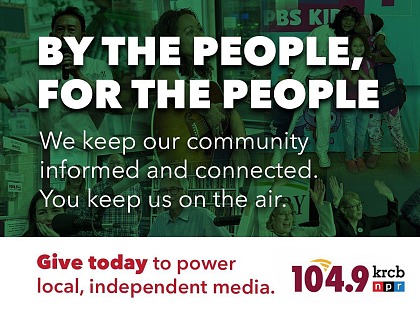 photo credit: Shutterstock
photo credit: ShutterstockNewly published statistics on Latino health care in California reveal obstacles to care for 40% of the state's population.
The California Health Care Foundation, a philanthropic nonprofit that works to improve the health care system, recently released the 2025 California Latino Health Almanac. It offers a snapshot of demographics, health trends and disparities among Latino residents. Research contributors and public health advocates held a webinar Wednesday to discuss findings.
Latinos make up 40% of the state's population, representing its largest ethnic group, and nearly two-thirds -- about 10.5 million -- were born in the United States. The remaining third are predominantly immigrants from Mexico, followed by El Salvador and Guatemala. Only 15% of Latinos report not speaking English, yet despite this integration into California's cultural fabric, health disparities remain significant.Thirty percent of Latinos report having no usual source of health care, and about 22% rely primarily on community clinics or hospital systems. By 2023, most children and youth across all racial and ethnic groups were insured, mostly due to the Affordable Care Act, but Latino Californians remain slightly less likely to have coverage than non-Latinos. Latinos are the largest subscribers to Medicaid, the federal program for people with low incomes, at 33.7%, and out of the 9.6% of uninsured Latinos, 44% are foreign-born.
"Latino older adults might be getting old and will not be eligible for Medicare because they're undocumented or they didn't contribute years to Medicare," said Arturo Vargas Bustamante, professor at University of California, Los Angeles and faculty research director at the UCLA Latino Policy and Politics Institute. "That's why Medicaid is so important to keep alive and to keep funding in the long term, because many older adults are going to need it as they grow old."
One of the most striking findings is related to Latino mortality. Despite having lower average education and income levels, both factors often associated with poor health, Latinos in California have historically experienced lower overall mortality rates than both White and Black Californians. This advantage, however, was temporarily erased during the COVID-19 pandemic in 2020 and 2021, when Latinos experienced disproportionately high death rates. That reversal underscores the vulnerability of Latino health in times of crisis, particularly when access to health care is constrained.
Although Latinos represent 40% of California's population, the proportion of Latino health care providers is disproportionately low. Los Angeles County, home to the largest Latino population in the state, has the lowest ratio of Latino doctors, while the Bay Area has the second-lowest.
The disparity is especially pronounced in mental health services: only 11% of licensed psychologists in California are Latino. The study finds that Latinos are more likely to seek care and discuss mental health needs when their providers share cultural backgrounds, highlighting the importance of expanding the pipeline for Latino clinicians.
Latino families with young children are nearly twice as likely to face housing instability as non-Latino families. Housing insecurity contributes to asthma, emotional distress, and disruptions in schooling, all of which correlate with long-term health effects. Thirty-three percent of Latinos have less than a high school degree, and that same percentage of Latino households with children experience food insecurity.
Soda and sugary beverage consumption is also higher among Latino children, with 33% reporting regular consumption compared to 19% of non-Latino youth, a pattern tied to obesity, cavities, and metabolic disorders such as Type 2 diabetes. Latinos with diabetes are hospitalized more often for uncontrolled diabetes and acute complications, and they experience higher rates of long-term conditions such as chronic kidney disease, blindness, and limb amputations.
Suicide rates among Latinos are nearly half the rate of non-Latinos, yet homicide rates are about two percentage points higher.
The question of a mental health crisis was raised in Wednesday's panel, given the turbulent times Latinos are experiencing in the country right now and the spread of misinformation.
"I think it's time as well to just acknowledge, the deeply distressful situation that we're in and that for many of us, because this is our passion and our work, we're facing a moral injury on a day-to-day basis," said Seciah Aquino, executive director for the Latino Coalition for a Healthy California, a nonprofit policy advocate for health equity.
"We have to get up every day. Know that it's affecting our personal life, our family, our loved ones and continue fighting," Aquino said. "We need you in the long run. Please take care of yourself. If you have staff members who are Latino or Indigenous, please, take care of them as well and together we can continue supporting each other's mental health."
The Latino Health California Almanac can be found at www.chcf.org/almanac.

 Live Radio
Live Radio




